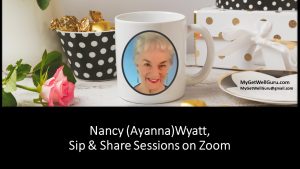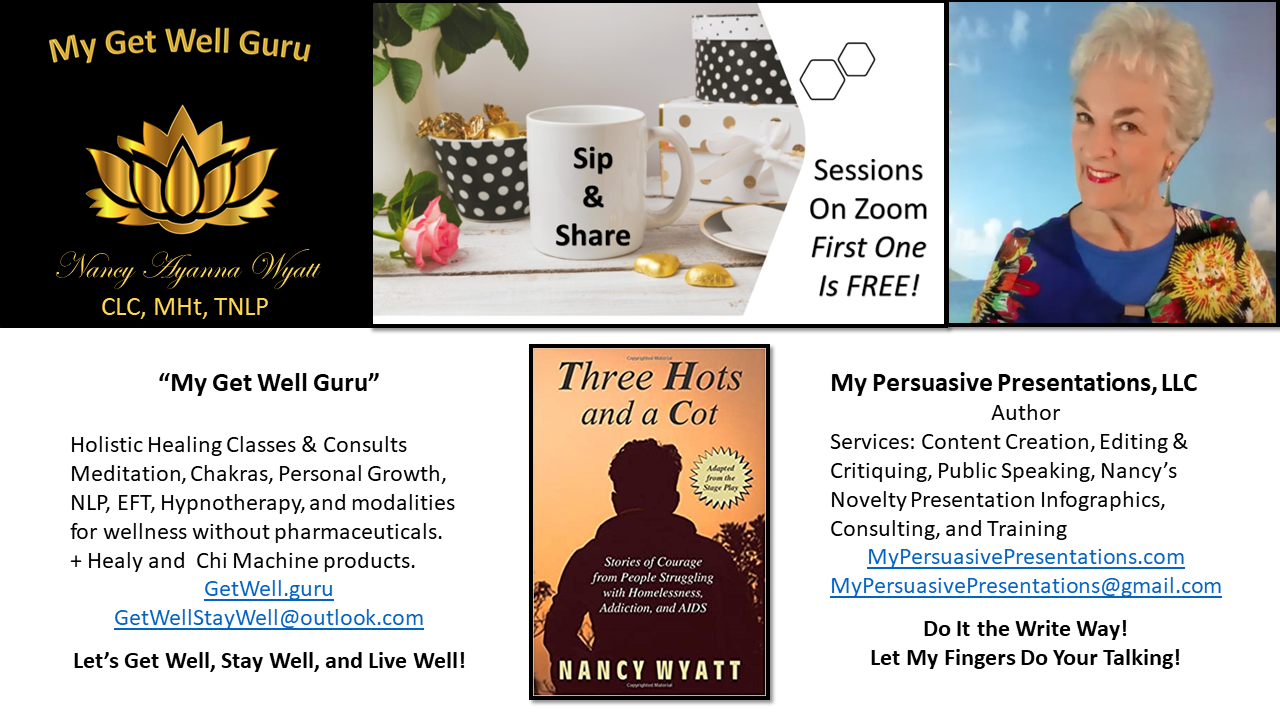The surprise finding emerged from a cross-sectional study published recently in the British Medical Journal Supportive & Palliative Care involving 273 patients, mostly women, who received either platinum- or taxane-containing drug regimens alone, or in combination, for the treatment of lung, breast, gastrointestinal, or gynecologic cancers. Participants were part of a larger study characterizing chemotherapy-induced peripheral neuropathy (NCT01557608).
No matter the dose or whether the two types of drugs were given together, the audiogram-confirmed results of the hearing loss were statistically similar. The study, supported by the National Cancer Institute, also found that up to 40% of survivors experienced tinnitus, a persistent ringing or hissing in the ears, considered a risk factor for hearing loss and a possible symptom for many other health problems.
I encourage you to use the link to read the whole article if you are experiencing cancer or are a caregiver for a cancer patient.
That News Caused me to Share My Previous Post About Hearing & Resources
Let’s Learn About Hearing Loss and the Northern Virginia Center for Deaf and Hard of Hearing Persons (NVRC)
Darren’s experience with hearing loss is similar to what happens to millions of people who rarely talk about it. Thus, in telling his story, I hope to help everyone understand more about themselves and others who undergo similar challenges.
- First, let’s look at Darren’s unusual background and special talents.
- Next, let’s learn from him what it feels like to be in denial about hearing loss and how people try to hide it.
- Then, we’ll share how you can find wonderful resources – both for people who experience hearing degradation and those who want to support and communicate with them!
Following his brief bio sketch, I’ll share summarized segments of my interview with this dear friend and colleague, whom I have known professionally since 2013. We talked about his personal experience and then moved into specifics to share with the world about the kinds of resources (including service animals) that are listed as resources by the NVRC. To access those lists at this clearing center, go to https://www.nvrc.org/ or see specific link topics below.
Excerpt from Darren Marquardt’s Bio (in his own words)
As a person with genetic hearing loss and a BTE hearing aid user, Darren has dedicated his personal and professional energy to working with and for others who are deaf or hard of hearing. Darren continued his involvement with ASL and the Deaf Community by participating in a variety of Deaf events, including many in the Northern Virginia area. He is the Organizer of the Meetup ASL Bridge / DMV.
Darren’s first career was as a professional ballroom dancer and teacher.
 After retiring from dance, Darren transitioned into real estate, earning his license and successfully owning a real estate business for the past 23 years.
After retiring from dance, Darren transitioned into real estate, earning his license and successfully owning a real estate business for the past 23 years.
He is also a professional actor, frequently performing in DEAF/Hearing productions that bridge communication between communities.
Darren is one of the founders of the Business Roundtable in the Northern Virginia area, a business educational mastermind and networking group. His diverse achievements and contributions were recognized when he was named one of George Mason University’s Distinguished Alumni in 2011.
Darren holds degrees from George Mason University and George Washington University. In 2018, Darren also completed his coursework for an MFA degree in Classical Acting. Here he is at the Shakespeare Theatre Company.
My Conversation About Hearing with Darren Marquardt 11-1-2024
You’re not only in the real estate business, which requires lots of interpersonal communication, you also lead networking meetings, and you perform on stage. So, when hearing fades, that can be very impactful. How would you describe it?
Darren spent twenty-three years in Virginia as a hugely successful realtor and still maintains his license. He is an expert at salesmanship and, by reputation, maximizes profits while making each transaction as much of a win/win for buyer and seller as possible. However, changes in the industry have left him with the desire to pursue more soul-satisfying work. Enter, NVRC, Stage Right!
A friend suggested he interview for the position of Executive Director at NVRC because he’s a “self-starter and a go-getter!” As a professional actor and dancer, Darren was accustomed to auditions and decided to try it, even though this company is a non-profit organization that sells no products. He did not expect the organization to find him suitable as its new leader. To his surprise, the interview lasted for three hours, and the staff were as enthralled with him as he was with them in terms of the possibilities for providing excellent and expanding services.
Does deafness “run in your family?”
Darren was raised in Minnesota and responded, “Yes, it does run in my family, but Minnesotan families do not talk about problems, so – in that sense – it was a surprise.”
When and how did you become aware your hearing was fading?
He thinks it began when he was in his mid-thirties, but he ignored it. As its loss progressed, he thought other people were mumbling or slurring their words. Of course, as an actor, he was highly attuned to the need for good diction, so there was a double source of frustration with how people sounded to him.
On the other hand, as an actor, he couldn’t let the director, cast, and crew know that he couldn’t hear them, so he had to become very good at lip reading and positioning himself to see what was happening, rather than relying on hearing. Ultimately, he had to do this consciously, not just subconsciously.
What things did you try in order to offset or hide the condition; or how did you cope before closed captioning became available online in Zoom, for example?
Most of Darren’s performing arts career has been spent in “regular” theatrical, dance, or clown productions. However, Darren had been working in deaf theater for a while doing American Sign Language (ASL) and voice work. He learned a lot of coping mechanisms and began to employ them.
1. He started asking questions of his deaf production members, but he pretended he was asking for a friend.
2. When possible, he used ASL.
3. After a person spoke, he would say (with the inflection of asking a question), “Say again…?” or “Sorry…?” (Note: he stopped using the word, “What” and substituted “Sorry.”)
4. He used lip reading skills more and more often. To be successful in any situation, he had to ensure he was at the correct eye level to see a speaker’s lips.
5. Darren learned to listen by putting things in context. The word bake – and the word bait – can sound exactly alike. Therefore, if the conversation was about cooking, the context would let him interpret the word as being “bake,” and no one needed to know he could not hear clearly.
(When we talked, I pointed out that this is a strategy used by many people who are whose native language is different from that being used in conversations. It can work quite well.)
The Reality of Hearing Loss Sets In
At some point, the hearing loss and Darren’s denial that it was happening became an issue in his closest personal relationship. The couple did not argue, but Darren’s partner got frustrated and began thinking Darren simply never listened to what was being said! It felt as if the love had evaporated. It was maddening, demoralizing, and exasperating. For example, Darren might ask a question that had just been answered or not respond at all to comments or questions!
The problem came to a climax when Darren and his partner were looking for Darren’s car. Darren used the remote button, as we all often do, to try to find the vehicle by following the sound and became very frustrated that it wasn’t working. He kept punching the remote button and was becoming angrier and angrier – only to discover he was standing directly in front of the car. He felt devastated.
That shocking incident was overwhelming and erased all pretense that Darren could remain in denial of the deafness that was ensuing. It is what is known as “a blessing in disguise,” in that the unpleasant event is what finally got him to see a doctor, who referred him to an Ear, Nose, and Throat doctor before he saw 3 audiologists.
Darren was diagnosed as having severe hearing loss and needing hearing aids.
The Trials & Tribulations Take a Turn

Starting With: Most Insurance Does Not Cover Hearing Loss Items!
- Darren discovered that hearing aids are not covered by insurance; and, at the time he first tried to buy aids, they cost over $6K for 2 hearing aids.
- He wondered, “How can I treat this issue if I can’t afford it?”
- Doctors were pressuring him hard to buy hearing aids – to the extent that it raised questions about whether some have ethics issues regarding personal financial interests in the product sales.
- He contacted the NVRC to get information and learned there are some places, like the Lion’s Clubs, that might have assistance programs for those who qualify; but lots of people do NOT qualify for aid.
- The conclusion is that there is very little help for anyone who does not have insurance coverage specifically purchased for hearing issues.
- People advised him to go to Costco, but he resisted on the basis that he needed prescription-grade hearing aids for his specific situation – not generic OTC (Over-the-counter) aids.
o Some Costco locations do have doctors or audiologists in hearing departments.
o He was able to get a discount there, but it still cost over $3k.
Hearing Aids – the Good, the Bad, and the Ugly
Modern hearing aids are much more efficient and either “cute” or invisible in comparison with early versions. In fact, with so many people wearing “earbuds” in their ears to listen to music and other programming, people might just think that a person is wearing that kind of device instead of a hearing aid. Truthfully, having things hanging inside or out of your ears is so commonplace, that many people would pay no attention to it at all!
Research Shows A Direct Link Between Hearing Loss And Dementia.
Darren said, “When you have good hearing, you don’t have to work or concentrate to hear. But with hearing loss, it is as if your mind must shrink from all peripheral sounds and images to focus intently on what you need to hear – like a zoom lens. That might be a contributor and causes over-stressing.”
So, Now You’ve Got Hearing Aids … What Happens Next?
With hearing loss, people have to strain to hear, and it’s stressful – especially when it does not work well. That is a good reason for wearing aids. They enable you to hear peripheral sounds.
BUT – Darren (and many other people with hearing loss) found he LIKES the peace and quiet of not hearing sounds all around him.
In addition, his other senses are enhanced, and he’s enjoying new-found awareness of them – things like touch, and taste, and even how he pays attention differently with sight to understand what is happening around him.
Yet, with hearing aids, he again hears ambient sounds and, when he first resumed taking his daily walk, he heard birds chirping again. The calls sounded so loud he felt like he was in Alfred Hitchcock’s horror film, The Birds. These days, he even hears the details of the crinkling of soft (Kleenex) tissue. In a restaurant or a crowd, the sound can be cacophonic and overwhelming. But, as with the birds, he now is rediscovering and appreciating sounds he hasn’t heard for some years.
Finally, A Benefit to Experiencing Ageism!
He is less self-conscious as he ages because people find it more acceptable to have hearing loss with age. They actually might expect it.
On the other hand, Darren’s beloved pugs (Cane and Mabel) used to be good guards and alarm raisers. Now, the pugs also have lost their hearing and don’t know when he arrives home these days. Everyone is growing old together.
What are the top 3 things that help you most in coping with the hearing loss when you are In interaction with clients, or in other social situations
1. We all are blessed (as well, perhaps, as feeling cursed at times) by the existence of current technology. Darren always has an app with closed captioning available to him. It’s on his phone, so he can use CC even when encountering someone on the street.
2. He also uses Live Transcribe which is an accessibility app from Google designed to help people with hearing loss have conversations and participate in the world around them. The app captures audio from a user’s environment and generates onscreen captions when it detects words.
3. Hearing aids; Portable charger for hearing aids
4. BONUS ANSWER: He has learned to ask for visual cues instead of verbal cues, if needed, on stage.
Darren’s responses to the question below led us to discussing some of the hearing resources and tools you can learn about by visiting NVRC.org.
What safety measures do you take (or should you take) when you are home alone and know you might not hear things like thunder or fire alarms, etc.?
- They distribute information about Interpreter Services.
- You can buy an alarm clock that will shake the bed when it goes off.
- For Profound deafness – NVRC provides info and some technical assistance in their Tech Assistance Program, called TAP.
- They provide a training room and information about blinking lighting systems, caption phones, and vibration systems.
- NVRC even teaches about TTY equipment that is still used in some rural areas but is being phased out. TTY has old technology which must be plugged into a landline.
- You can learn about Security systems – or doorbells that ping your phone
- If you qualify for the TAP program, you can qualify for lower costs.
What did you find to be the best research resources on the topic of hearing loss?
I had created the questions I wanted to ask Darren before I knew he was the Director at NVRC, so I felt silly asking him this question. I did it anyway, and it turns out that NVRC IS the best resource center. Individuals and groups from “everywhere” go to it for information! NVRC acts as an umbrella organization for the deaf, people who are both deaf and blind, those who are hard of hearing, caretakers, and seniors who are losing their hearing. Counties all over Northern Virginia rely on NVRC, and their reach is expanding, despite the small staff.
What are the best sources of news and entertainment for people who cannot hear if their sight also is diminished?
Happily, adaptive technology is now available, and most forums already have made accommodations. But, we need to teach people things like not using PDF files. PDFs do not have the feature that enables people to read Alt Text, which describes what is in images. We need to help people automatically think of filling in Alt Text descriptions and using closed captioning in their conversations, classes, meetings, and entertainment presentations.
Another source is “Deaf Plus Advocate.” https://www.deafplus.org/about led by Jeremy Smith.
How does hearing loss change your sense of self-esteem, your public identity, and your purpose in life? You have gone through a great evolution on this topic.
Going From Denial to Explorer/Conqueror!
My Man!
Again, Darren grew up in a Minnesota community where there were schools for “the feebleminded and deaf.” However, he didn’t have a disability and did not pay a lot of attention to those kinds of subjects. Nevertheless, he did acquire a deep appreciation for diverse communication needs and inclusive communities.
At first, as he recognized the growing hearing loss, he found himself shrinking from contact with people. He felt embarrassed, didn’t talk about it, ignored it, laughed it off, and told people to stop mumbling.
“Now that I have accepted it and have become involved, my whole perspective on hearing loss has changed! Now, it’s like it’s a superpower. I am better able to focus. I was almost ADHD before. Now, I have concentrated focus. My other senses are heightened. I’m not embarrassed anymore. I’m finding it Empowering. And, we hire deaf and hard-of-hearing people.”
True to form, Darren will be a Commencement speaker for health and continues to enhance his standing as a lifelong community leader.
NRVC PROVIDES EXTENSIVE RESOURCE INFORMATION TO THE PUBLIC
About – Northern Virginia Resource Center for Deaf and Hard of Hearing Persons
Resources – Northern Virginia Resource Center for Deaf and Hard of Hearing Persons
Events – Northern Virginia Resource Center for Deaf and Hard of Hearing Persons
Gallery – Northern Virginia Resource Center for Deaf and Hard of Hearing Persons
Donate with PayPal Giving Fund
The Vision & Mission Statements
Personal Vision Statement: As the Executive Director of the Northern Virginia Resource Center for Deaf and Hard of Hearing Persons (NVRC), my vision is to create a thriving and inclusive community where the Deaf and Hard of Hearing are fully empowered, respected, and integrated into every aspect of life. By fostering innovative communication strategies and building strong, collaborative relationships, I aim to bridge the gap between the Deaf and Hearing communities, ensuring that everyone has equal access to opportunities, resources, and support.
Personal Mission Statement: My mission is to lead NVRC with integrity, passion, and a deep commitment to the values of Communication, Community, Collaboration, Contribution, and Encouragement. I will work tirelessly to enhance NVRC’s impact by working to expand our services to the community, strengthening existing partnerships, and forming new connections that advance our mission. Through strategic fundraising, advocacy, and the promotion of diversity and inclusion, I am dedicated to building a sustainable future for NVRC, where the Deaf and Hard of Hearing can thrive alongside the Hearing community.
Do You Want to Learn European & American Sign Language?
Learn more at Start ASL. https://www.startasl.com/american-sign-language-alphabet/
Do You Want to Sip & Share About You?
I hope this has been helpful. I’m no expert on the topic of hearing loss; so, if you have any questions, please address them to NVRC. On the other hand, if you want to discuss related issues and want a sounding board for your feelings or ideas about solving problems, feel free to request a FREE Sip & Share Session. Just email me at GetWellStayWell@Outlook.com and put “Request Sip & Share re Hearing Issues” in the subject line. We’ll coordinate schedules, and I’ll set up a Zoom meeting where we can chat, free of charge for the first session. It typically lasts about 30 minutes. Learn More Here.




















